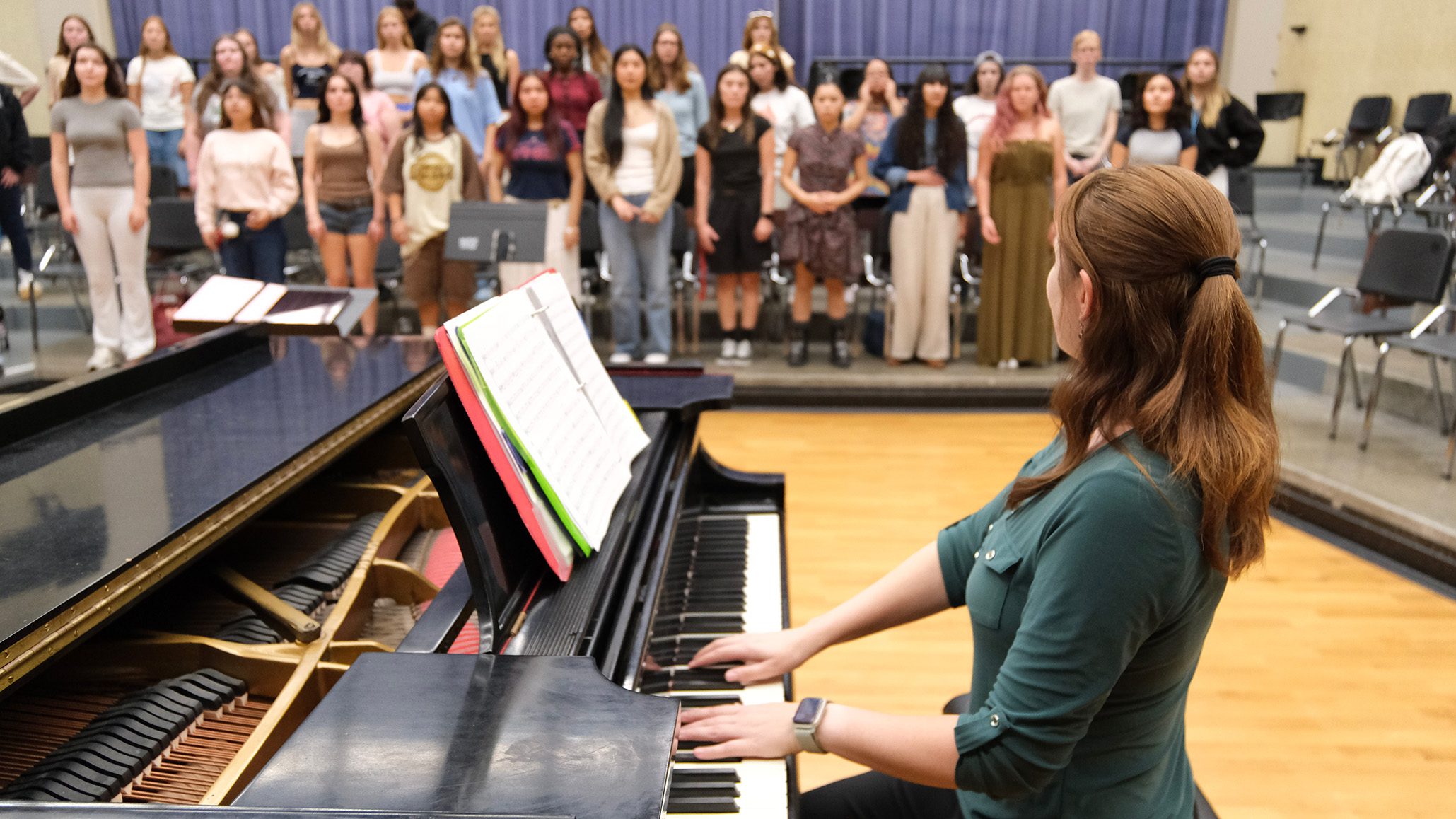For Undergrad Research Opportunities, Go to the Hub
Program developed by students provides a direct connection to faculty members looking for assistance.

Last spring, a group of San Diego State University students had an idea: what if there were one place students could go to get connected to various research opportunities around campus, making that valuable find a less daunting task?
Thanks to a $13,000 grant from the Aztec Parents Fund, their brainstorm is a reality.
The Culturally Connected Research Hub, housed in the Latinx Resource Center inside of the Love Library, is in its infancy, the goal of demystifying undergraduate research opportunities and making them accessible to all students — but especially to first-generation students and historically minoritized students — is the driving force behind its development.
“There is a real sense among a lot of students that the opportunity to understand and engage in research is sort of hovering out there, but not always clear and transparent — and particularly for our first-generation students and students of color,” said Michael Dominguez, the inaugural Augustine “Gus” Chavez Faculty Scholar for the Latinx Resource Center. Dominguez was integrally involved with the creation of the hub.
While some of the students who worked on developing the concept “fell into” research opportunities before graduating, others didn’t and found themselves at a disadvantage when applying to graduate schools, which asked on applications if they had any research experience.
“So the thought process was, if we could do something that would help break down the barriers and demystify the process, it would go a long way,” Dominguez said.
Dominguez said he believes research is pivotal to the undergraduate experience, regardless of whether a student intends to pursue a graduate degree or not.
“Undergraduate research is incredibly important because it helps students see and understand themselves as creators of knowledge,” Dominguez said. “Too often we go through classes, take classes and write papers and all we are sort of doing is parroting and reading what other folks say and sharing it back to an instructor.
“But really what learning is about is creating knowledge, is becoming someone who produces knowledge,” Dominguez added. “What we want at San Diego State is to be producing leaders for the future who are creative, who are innovative and thinking of new ways to be in the world. Being involved in undergrad research gives you a great foundation and great experience seeing the ways in which knowledge is constructed and the ways in which we can be in part of the construction and the development of knowledge.”
The LRC used the Aztec Parents Fund grant to bring in Mariano Lozano Soto, a graduate assistant, to serve as co-executive director of the hub.
Lozano Soto called the experience developing the hub “refreshing.”
“Students have a desire to have more opportunities to engage in research,” Lozano Soto said. “So far, It has been a great experience being able to engage with students or faculty who have the same interests.”
The hub hosted its first event of the spring semester on Feb. 22, a Zoom session with Mahasweta Sarkar, a professor in the Department of Electrical and Computer Engineering. Lozano Soto said the forum gave students an opportunity to learn about research opportunities in that department directly from a member of the faculty, eliminating one of the barriers that students often face when trying to engage in undergraduate research.
“One of the first questions students have is ‘Where do I go?’ followed by ‘Can I talk to this faculty member?’” Lozano Soto said. “By normalizing these conversations and establishing direct communication with the faculty, we get rid of that barrier of anxiety of talking to professors.”
Last semester, the hub began outreach efforts with faculty members in various departments, including Latin American studies, sociology, history, education, science and engineering. Building these relationships will allow for the hub to become that gateway for students to those research opportunities, Lozano Soto said.
This semester, they will host faculty highlights like the one with Sarkar and end the semester with a bigger “meet and greet” with multiple faculty members, with the date yet to be determined.
Dominguez reiterated that the goal is to not be a “center” but a true hub. It’s all about connecting people, he said.
“We know there are great programs in every college, and they’re probably in department meetings or faculty meetings wondering ‘Why aren’t we getting as many students signing up for this (research opportunity)?’” Dominguez said. “I’m sure those kinds of conversations are happening, so we want to basically help them answer that question and help them address those challenges.”



